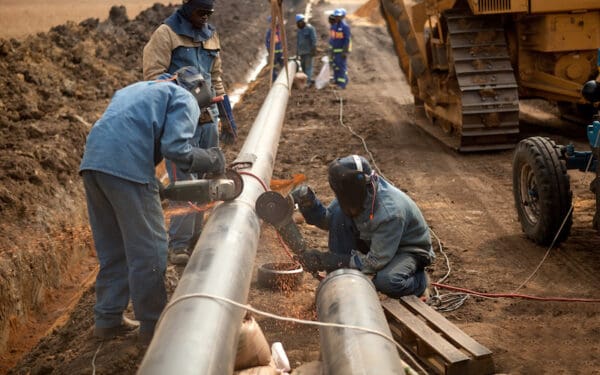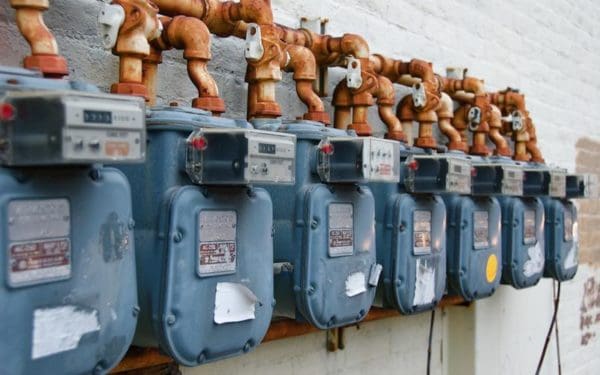In Brief
- New England’s regional grid operator has disqualified Invenergy from participating in its upcoming annual energy auction, in which power generators bid to supply the energy the region will use three years from now.
- This shows that even those who operate our electricity grid don’t think New England needs this fossil fuel power plant.
- Invenergy has once again misled the public and the Energy Facility Siting Board, trying to quietly gain a permit to build its polluting power plant even though it doesn’t have a buyer for its energy.
Deeper Dive
Invenergy announced that it had been disqualified by New England’s electricity grid operator, ISO-NE, from participating in the ISO’s Forward Capacity Auction-12, to be held in February 2018.
What does that mean?
The ISO runs the New England electricity grid, including running the wholesale markets that set the prices for electricity. Every February, the ISO runs an auction, called a Forward Capacity Auction, in order to procure enough electricity supply (called “capacity”) for the future. The ISO’s Forward Capacity Auction 10, held in February 2016 showed that Invenergy wasn’t needed to meet future energy needs. The ISO’s next capacity auction, held in February 2017 showed once again that Invenergy is not needed.
Yesterday, Invenergy informed Rhode Island’s Energy Facility Siting Board that the ISO has actually disqualified Invenergy from even participating in the next capacity auction, in February 2018. This is yet further evidence – from the operator of the New England electricity grid – that Invenergy is not needed, something CLF has argued from the start.
Is this important?
Very important. Invenergy’s entire permit application to the Siting Board is based upon the idea that Invenergy’s proposed two turbines, which will generate 1,000 MW of electricity, are necessary for Rhode Island and New England to have an adequate supply of electricity. Now the ISO is not even allowing Invenergy into the next capacity auction, meaning the entire basis of Invenergy’s pending permit application is no longer valid.
What will happen next?
Invenergy’s November 1 letter to the Siting Board admitted that, based on this new information, the Advisory Opinions provided to the Siting Board by the state’s Division of Planning and Office of Energy Resources are no longer valid. Therefore, CLF is asking the Siting Board to get new Advisory Opinions from those two agencies. If the Siting Board agrees with CLF, the final hearing in the Invenergy case (now scheduled to start in December) would have to be postponed by several months. If the Siting Board denies CLF’s request (and later approves Invenergy’s permit), that denial could be reversible error. In either event, Invenergy is not going to have shovels in the ground any time soon.
What else?
Invenergy has known for at least weeks, and maybe longer, that it was going to be disqualified by the ISO from participating in the next capacity auction. On November 1, when Invenergy informed the Siting Board of its disqualification, the company also filed a report trying to explain away the significance of the disqualification, a report that obviously took considerable time to prepare.
Is that fact significant?
Yes. Invenergy has had a disclosure problem throughout this proceeding, and its November 1 filing with the Siting Board made that problem much, much worse.
On Friday, October 27, the Town of Burrillville filed a motion to dismiss the Invenergy project with the Siting Board. The reason that Burrillville gave for seeking dismissal was Invenergy’s failure to disclose a water contract with the City of Fall River: “Invenergy has repeatedly failed to disclose the CREC-Fall River Water Agreement to the [Siting Board]. . . despite multiple opportunities to disclose it and a continuous obligation to do so.”
On October 31, CLF filed a response supporting Burrillville’s Motion to Dismiss, saying that Invenergy’s problems with not disclosing relevant information and with providing false information go all the way back to Invenergy’s very first filing with the Siting Board in 2015. CLF agreed with Burrillville’s reasoning (dismiss the case because of Invenergy’s failure to disclose the Fall River water contract), and pointed out other, additional failures by Invenergy as well.
This new development magnifies Invenergy’s lack of candor with the Siting Board and the public. Invenergy has known for weeks (or months) that it was disqualified from participating in next February’s capacity auction. Invenergy withheld that information from the Siting Board and all the parties. Meanwhile, Burrillville and CLF have a motion pending to dismiss the docket as a sanction for Invenergy failing to disclose relevant information.
The bottom line is that even while there was a pending motion to dismiss the docket for Invenergy’s failure to disclose certain information (about the Fall River water contract), Invenergy was actively hiding much more important information (about being disqualified from the ISO auction). It’s time for the Siting Board to put an end to this charade.




